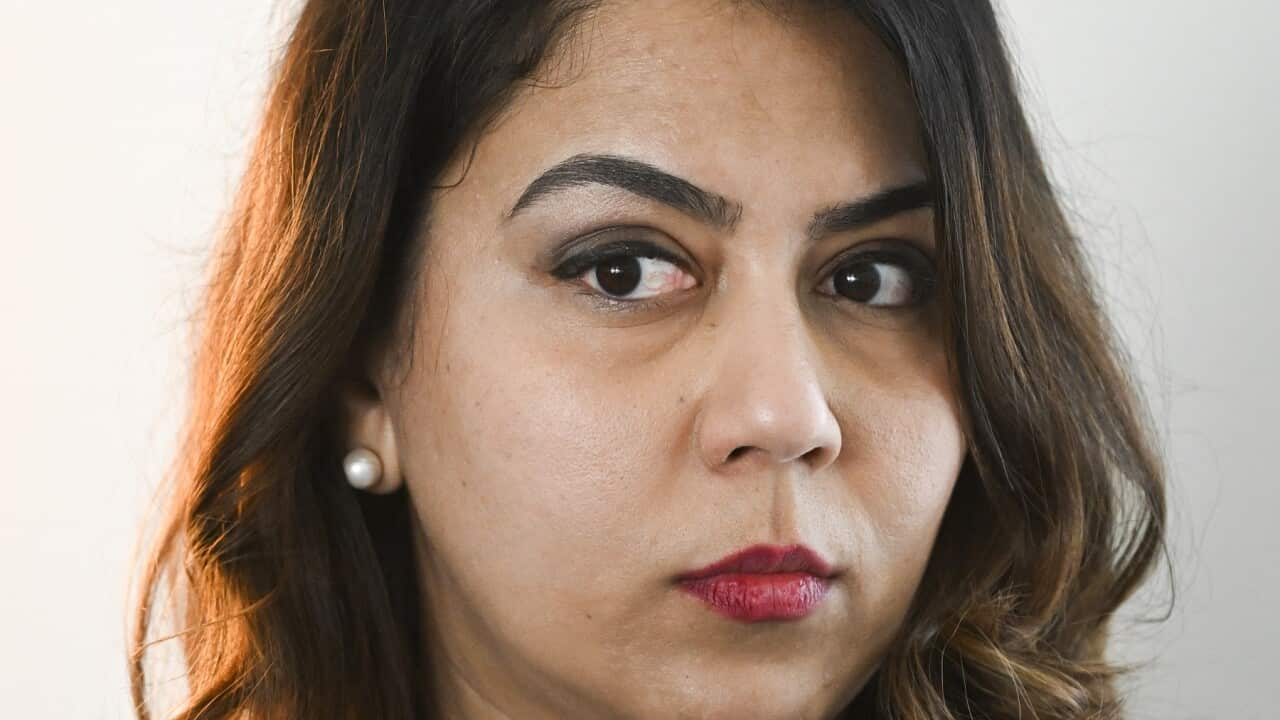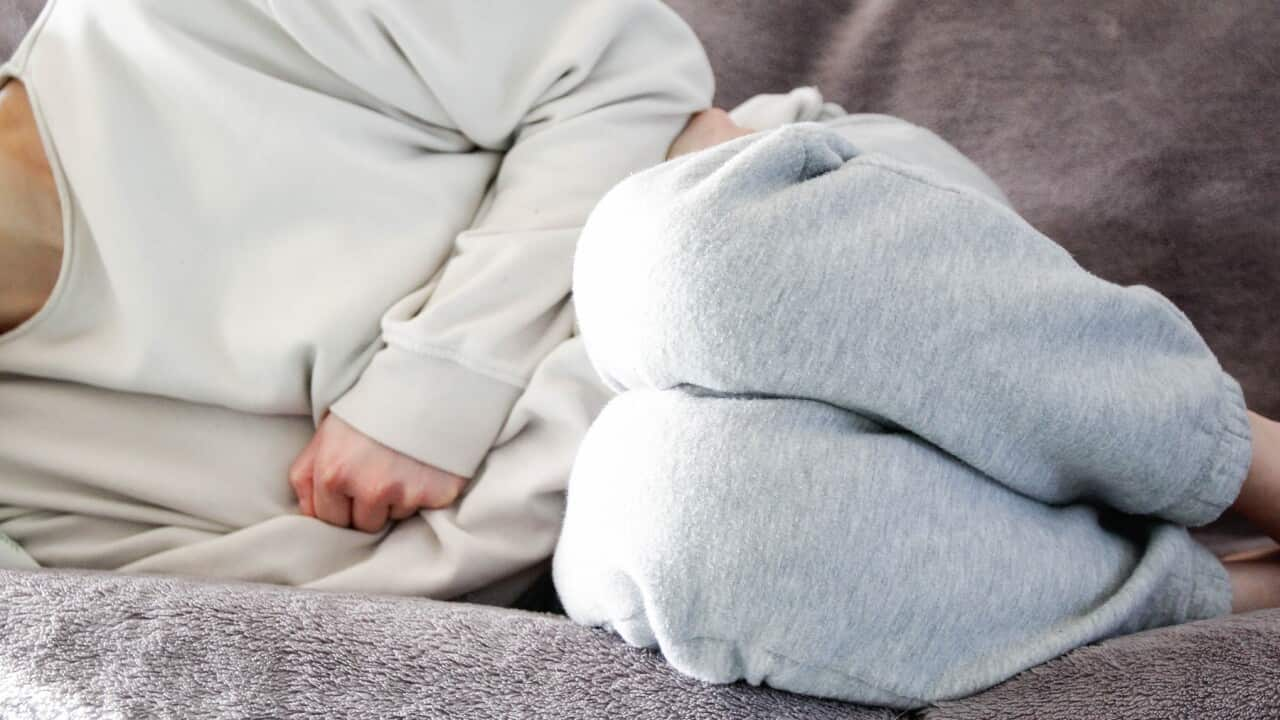TRANSCRIPT:
For culturally diverse women, overcoming discrimination and marginalisation to achieve a leadership role remains a challenge.
That's been the research focus of a paper by academics at Monash University published the international peer-reviewed journal BMJ Leader.
The paper lists systematic intersectional barriers stopping culturally diverse women from rising to the top, including: racism, sexism, bigotry, prejudice and biases, unconscious biases, structural inequalities, institutionalised patriarchy and safety concerns.
Five women who have managed to surmount some of the challenges were interviewed for their perspectives on the problem and solutions.
Research author Darshini Ayton says the low numbers of culturally diverse women in leadership roles, makes it critical that lived experience is featured in policies and decision-making on solutions.
"Something that came through all of the interviews - people were kind of like: 'people look at us, and particularly, if we're from a non-European background. We are physically different in how we're seen and how we're perceived. And so that is not what is in our culture, in Australian culture, people necessarily recognise as what leadership what look like. And how we lead is different. And I have been talking to colleagues since doing this piece of work and just some of the cultural norms, from other backgrounds. For example, I am Indian-Sri Lankan. Sometimes making direct eye contact is not something that is encouraged. That is not seen as something that is a leadership trait. But I think there is a lot of strength that can be brought from that in terms of different types of skill, different types of capabilities. But I just don't think people see us in that way. Because we're not represented. And so you can only, for the next generations coming up - you can only be what you can see, right? No one is seeing it at the moment because they're not there."
Wurundjeri and Ngurai Illum Wurrung woman Sue-Anne Hunter has served on several boards over the years in the Aboriginal child welfare and health space.
She is also one of five commissioners with Australia's first Indigenous truth-telling body, the Yoorrook Justice Commission in Victoria.
She it has been a challenge to be taken seriously by board members who are usually white, male and middle-aged.
"And you actually have to make a noise and stand up, really stand up strongly for what you believe in to be able to make the difference. It becomes quite disheartening. I think it takes, dare I say it, a strong woman to be in these leadership positions and to stand up for - not only the work you're fighting for - I'm fighting for justice and healing for our people. But also fighting because I want our next generation of girls to be heard and not have to be in that space."
Afghan-born Australian human rights advocate and lawyer Mariam Veiszadeh is the CEO of Media Diversity Australia.
She left behind a career in law to pursue advocacy in gender and cultural diversity.
She says the barriers are very real - and it is stopping talented women from becoming leaders.
"Those things add up. And you know it has been described as death by a thousand cuts. The impact of those micro-aggressions over time can really over time can have a compounding impact."
She says shares some examples of the type of behaviour that can take a toll.
"Because I choose not to drink as a practising Australian Muslim woman then I would be effectively mocked for that. Having worn a headscarf for quite a long time throughout my career, and the assumptions that people made with that where people would make an assumption that I can't speak English; where there were situations where I would walk into a room as a practising lawyer, for example, and a barrister would walk into the same room; look straight at me and go: 'Am I wrong place?'. Again, there is this assumption that I didn't belong there. When you experience those things over and over again - it does start to wear you down."
The negative attitudes in the workplace can also impact on the desire of culturally diverse women to pursue leadership roles and they can also encounter outdated views of desired leadership traits.
“I've been told things like: well, if you want to be a leader Mariam, (you should change) you're just too nice. Things like that I know echo sentiments that I know other women have heard as well. And it speaks to this issue of a very Western masculine-style of leadership. That this idea that you can't lead with compassion because that is such a feminine skill. And that leadership requires a sort of Western-style, masculine style of leadership. This is just such old school thinking. And we really need to challenge that."
Sue-Anne Hunter says her work with the Yoorrook Justice Commission has underlined the scale of the problem.
"And if we really look at the structures. So, I am on the Commission and we're looking at systemic racism - or systemic injustices towards First Peoples. And all those systems are created - are European creations. And our men don't sit there - let along our women (in decision-making roles). And so how do you sit in that. And I think I took on the role as the Commissioner to change the structures and systems from these injustices that happen; so that others can walk through...and they're actually accessible for everybody."
Gender diversity of Australian company boards has been growing steadily over the years, but cultural diversity has remained stagnant.
For example, companies listed on the ASX have grown the number of women over seven years to 44 per cent of board roles, according to the 2023 Board Diversity Index [[by the Governance Institute of Australia and Watermark Search International]].
On cultural diversity, there's been little improvement: 90 per cent of board members are from an Anglo-Celtic background.
In Australia's federal parliament, the track record isn't better.
At a population-level, 23 per cent of Australians claim a non-European ancestry, but only just 6.6 per cent – or 15 out of the 227 MPs – have overseas non-European backgrounds.
UN Women earlier this year estimated at the current rate, it will take 300 years to achieve gender equality. Add in cultural diversity and gender equality and that timeline stretches even further.
Research author Dr Darshini Ayton urges everyone to do what they can in their sphere of influence to actively dismantle harmful views and take responsibility for action and change.
"Being able to recognise and promote - and having allies in the workplace. And having people say: hey you should go for these leadership positions. You need to be able to back yourself. We are backing you in this. Because I think that the other thing is when you haven't seen yourself in position of leadership - or people like you in positions of leadership. You don't think that is something that you could necessarily put your hand up for. So, to have allies around you to then say you can do this and we're here to support you; and I'm here to support you in doing that. I do think - and I am hopeful that we as a society can get to that space quicker, the more that we have these conversations."













